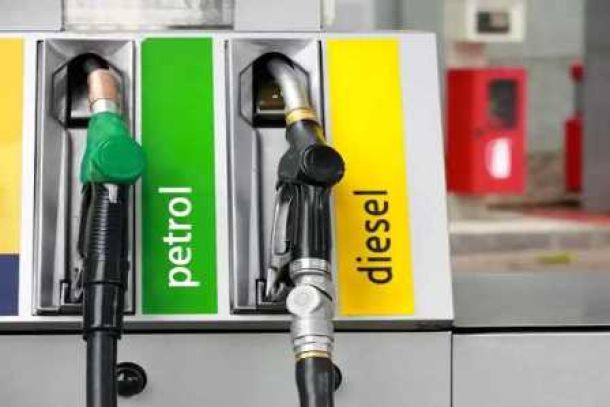Credible Threats to South Africa’s Economic and Social Recovery
According to a recent survey conducted by the National Income Dynamic Study Coronavirus Rapid Mobile Survey (NIDS-CRAM), more than 3 million people in South Africa, mostly low-income earners, have become unemployed between February and April this year – a decline of 18% in employment. They anticipate that this trend will continue, given the underlying labour market dynamics.
FoodForward SA Managing Director, Andy du Plessis, says “The escalating number of ‘new poor’ will drastically increase the number of vulnerable people needing access to food, in a country where we already have more people on social grants than we have in formal employment. Statistics South Africa reports that the number of unemployed persons in SA had increased to 7.1 million in the first three months of the year and projects that the economic impact of the COVID-19 pandemic is going to leave about 50% of the population at risk of being food insecure.
“The path to recovery will undoubtedly be long and hard, as we brace for tough times ahead. What we do in the next 12 – 24 months, as a country, is crucial to rebuilding what was callously eroded by the Zuma presidency and then violently decimated by Covid-19,” says Du Plessis. The NIDS-CRAM survey also found that 47% of respondents reported that their household ran out of money to buy food after two weeks in April 2020 and that, in households with children, 15% of the respondents reported that a child had gone hungry in the last 7 days, during the period 7 May to 27 June.
“Children up to 6 years of age are the most vulnerable, and will be worst affected by the lack of food. After the age of 6, because of stunting, you cannot reverse the damage caused by this malnutrition-related disease. South Africa already has one of the highest stunting rates in the world,” adds Du Plessis. “
In addition to the increase in unemployment, the sharp increase in food prices also has a drastic impact on access to food, especially nutritious food. The Pietermaritzburg Economic Justice and Dignity Group’s (PMBEJD) annual report released in May 2020 indicates that there was a 7,8% increase in food prices since the start of the COVID-19 pandemic in March, which translates into an additional R250 that poor households have to spend to get the same basic food basket. The report also highlights that the year on year increase in the food basket between May 2019 and May 2020 is a staggering 13,8%.
”It is still too soon to accurately assess the full impact of the lockdown and containment measures associated with Covid-19. One thing, however, is clear – millions of people will experience severe hardship for years to come if progress to recovery stalls. This will set our country’s development back severely – which we simply cannot afford.” Du Plessis, who has been at the helm of South Africa’s largest non-profit focussed on hunger relief for the last 7 years, highlights three credible threats to our recovery, which must be addressed if we are to put our country on a steady growth path to recovery.
Threat #1: An Inept Government
As unemployment continues its downward trajectory, poverty will deepen and spread rapidly across existing and ‘new communities’ that were previously not affected. More and more people will not be able to afford to purchase food, and nutritious food will be too expensive.
“National, provincial and local government, in its current form, will eventually lead us to a failed state; unless they urgently and drastically restructure, manage government spending with the due diligence it deserves and implement proper performance-based outcomes for cabinet and government departments,” says Du Plessis. It is essential that government formulates and implements policies that will constructively rebuild the economy, create jobs, provide adequate social protection.
Threat #2: An Over-burdened and Under-resourced NPO Sector
“Sadly, because we cannot rely on our current government to comprehensively address the social needs in poor communities, there is a heavy reliance on non-profit organisations (NPOs) to fill the void left by government and provide crucial humanitarian, developmental and advocacy services in under-served communities, despite social protection of our vulnerable citizens being the direct responsibility of government and the right to access safe and nutritious food being enshrined in our constitution.
Most NPOs survive on meagre resources, as is, and the pandemic has had a negative impact on their operations and ability to respond effectively to the pandemic,” says Du Plessis. A report released in June 2020 by Epic Africa (The Impact of Covid-19 on Civil Society Organisations) paints a bleak picture for organisations that are invariably the only lifeline for millions of destitute people across South Africa. The report states that CSOs services in under-served communities are needed now more than ever. Of the CSOs surveyed to determine the impact of the pandemic on their operations and sustainability, they found that:
98% reported that Covid-19 impacted and disrupted their operations
55,69% experienced a loss in funding
84,48% report that they were not prepared for the impact of Covid-19 on their operations
49,87% introduced cost-cutting measures to cope with the impact of the pandemic
77,97% report that Covid-19 will have a devastating impact on their future sustainability
“There cannot be an effective recovery without the support of NPOs. Partnerships between NPOs and the corporate sector are crucial at this time of recovery, so that NPOs have the needed resources to respond appropriately in vulnerable communities.”
Threat #3: A Food System that Marginalises the Poor
A food system is a complex mix of activities involving the production, processing, transportation and consumption of food. The transformation of food systems has been a topic of robust debate for decades now. Issues concerning the food system include governance, economics, sustainability, food waste and the impact of the environment on people’s health.
In its Report on the State of Food Security released in mid-July, the World Health Organisation (WHO) emphasises that any approach to addressing hunger and all forms of malnutrition must also consider the transformation of food systems – making healthy food more affordable and accessible. “New evidence presented in this report shows that healthy diets are unaffordable for many people of every region across the world, especially for the poor and those facing economic challenges. The health impacts associated with a poor diet are significant and hugely detrimental to our growth and development as a nation,” says Du Plessis. According to WHO, a healthy diet protects against malnutrition in all its forms, as well as non-communicable diseases such as heart disease, stroke and cancer.
“Since food systems are inherently complex, transforming food systems will undoubtedly be equally complex and could take years to achieve. However, since South Africa has a net surplus of food, one less complex solution is to find ways to connect this world of surplus to a world of need – which is what FoodForward SA has been promoting since its inception in 2009,” says Du Plessis. “While we do receive good quality edible surplus food from donor partners, it’s only a drop in the ocean when compared with the estimated volume of surplus food circulating throughout the food system, annually.”
Countries like France, Italy and others have introduced laws to force food companies to donate surplus food to NPOs. “It seems like South Africa is a long way from getting such legislation enacted – not for a lack of trying on our part,” says Du Plessis. “We should not, however, have to force food manufacturers to donate food. Rather, they should take the view that it is their obligation to do so, given our social context.” He adds that “only some businesses understand that donating, rather than dumping edible food is not only good for business but also good business given the immediate cost-savings associated with donating food.”
“Food security and nutrition are inextricably linked to each other, and to the future of our nation’s growth and development. The high cost of healthy food coupled with its low affordability means that millions of people simply cannot access healthy food, leading to food insecurity on a grand scale. The threats highlighted above require a strong political strong political will to turn things around, along with vigilant, accountable and responsible businesses to do what’s needed,” says Du Plessis.
News Category
- International retailers
- On the move
- Awards and achievements
- Legislation
- Wine and liquor
- Africa
- Going green
- Supplier news
- Research tools
- Retailer trading results
- Supply chain
- Innovation and technology
- Economic factors
- Crime and security
- Store Openings
- Marketing and Promotions
- Social Responsibility
- Brand Press Office
Related Articles

Good signs for petrol prices in South Africa

Eskom wants to hike electricity prices by up to...

Big petrol price drop tipped for July

Fuel price cuts bigger than expected


